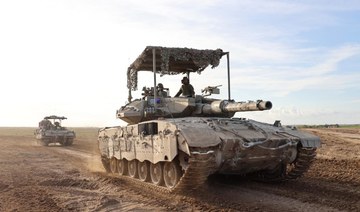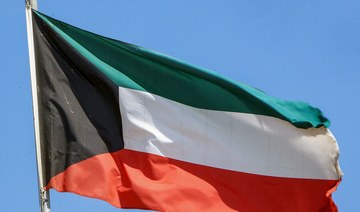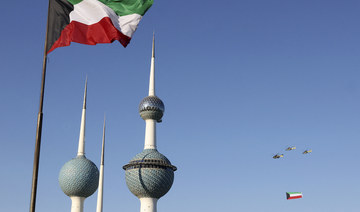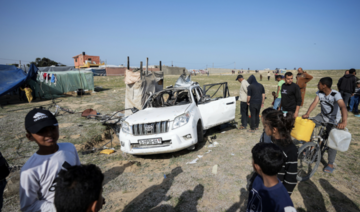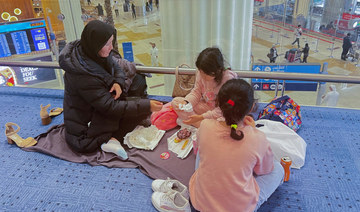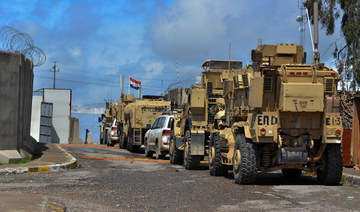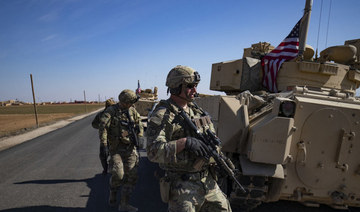BAGHOUZ: US-backed forces fighting to recapture the last Daesh group outpost in Syria admitted on Sunday they were facing “difficulties” defeating the extremists, saying they were being slowed by mines, tunnels and concerns over harming women and children among the militants.
The battle to capture the extremist group’s last patch of territory in eastern Syria — a collection of tents covering foxholes and underground tunnels in the village of Baghouz — has dragged on for weeks amid an unexpected exodus of civilians from the area.
The sheer number of people who have emerged from Baghouz, nearly 30,000 since early January according to Kurdish officials, has taken the Kurdish-led Syrian Democratic Forces by surprise. Most have been women and children whose existence in a labyrinth of underground caves and tunnels was unknown to the fighters.
In the last two weeks, many fighters appeared to be among those evacuating. But an unknown number of militants and civilians remain inside, refusing to surrender.
“We are facing several difficulties regarding the operations,” SDF commander Kino Gabriel told reporters outside Baghouz on Sunday.
He cited the large number of mines and explosive devices planted by IS and the existence of tunnels and hideouts beneath the ground that are being used by the militants to attack SDF forces or defend themselves.
The camp is all that remains of a self-declared Islamic “caliphate” that once sprawled across large parts of Syria and neighboring Iraq. But a declaration of victory and the group’s territorial defeat has been delayed as the military campaign sputtered on in fits and starts.
A final push by Kurdish-led Syrian Democratic Forces started on Jan. 9 but has been paused on several occasions, mainly to allow for civilians to evacuate and fighters to surrender.
Underscoring the struggles faced by the SDF as they try to flush the out extremists, three Daesh fighters emerged from Baghouz on Friday acting as though they wanted to surrender only to blew themselves up, killing six people.
The campaign has also been hindered by bad weather. Intermittent storms have at times turned the battlefield to mud and Daesh militants have mounted counteroffensives on windy days, burning tires and oil to try to force the SDF back with smoke.
On Sunday, dozens of men and women were seen walking around the besieged Daesh encampment in Baghouz, as SDF fighters watched from a hilltop close by.
The camp, looking much like a junkyard, was littered with damaged vans and pickup trucks parked between tents where people appeared to be moving about.
On the hilltop lookout north of Baghouz, an SDF sentry, lying flat on his stomach with his rocket launcher trained on the camp, cautioned an approaching comrade not to get too close. “There are snipers,” he said of the IS camp.
Gabriel said the camp was approximately 0.25 square kilometers in size — much the same area it was five weeks ago, when the SDF said it was finally going to conclude the battle.
In the middle of the camp stands a pair of two-story compounds, showing little sign of damage. Several houses that appeared habitable can be seen as well.
With operations now stretching into the spring, Gabriel faced pointed questions from the press over whether Daesh would be able to resupply itself with water and goods, despite the siege.
He said he was not aware of any smuggling tunnels still in operation, and that Daesh was cut off from the outside world.
“I don’t think we will be seeing more IS terrorists appearing in this pocket," he said using an acronym for Daesh.
A commander participating in operations on the western side of the enclave said he did not believe Daesh was fleeing to the other side of the Euphrates River either, where Syrian government forces and their allies are holding positions.
Gabriel said 29,600 people have left Baghouz since Jan. 9, among them 5,000 fighters — far greater than the SDF had initially estimated remained inside.
He said the SDF no longer estimates how many people remained in Baghouz but added that recent evacuees told the fighting forces that another 5,000 were still inside.
The force and the Kurdish-led authorities that administer northeast Syria have banned in recent days journalists from interviewing evacuees from Baghouz.
The evacuees are now living in detention-like camps in the self-administered region that international humanitarian organizations say are vastly overcrowded and underserved. They say disease is rampant in the camps and medical care is desperately needed.
“The Daesh terrorists are starting to feel hunger and thirst and we are seeing this in the people who are coming out of the camp,” said Gabriel.
US-backed forces admit to ‘difficulties’ beating Daesh in Syria
US-backed forces admit to ‘difficulties’ beating Daesh in Syria
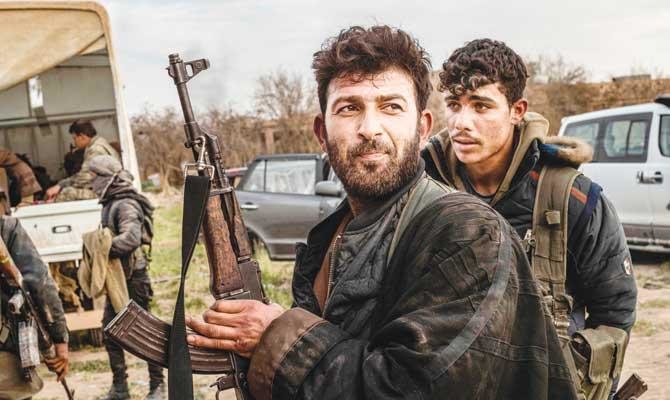
- An SDF statement said the latest fighting broke out after the Kurd-led force attacked Daesh positions inside Baghouz
Israel army unit facing US sanctions has history of abuses
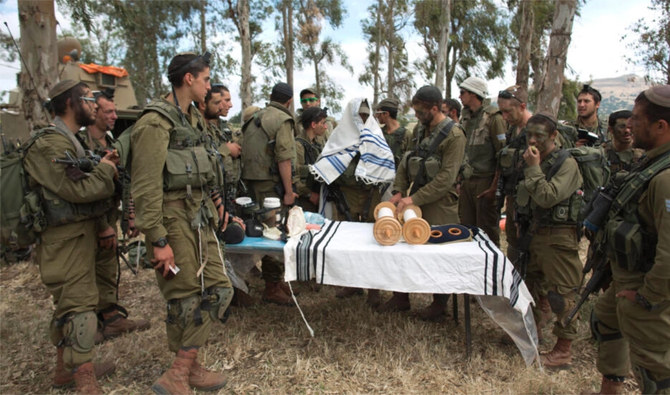
JERUSALEM: An Israeli battalion which US media say Washington is likely to sanction over alleged rights violations against Palestinians, has a long history of transgressions and impunity, according to analysts and Israeli media.
The military’s Netzah Yehuda unit was founded in 1999 to encourage ultra-Orthodox Jewish men to enlist but has since accepted other religious recruits including residents of Israeli settlements in the occupied West Bank, where Netzah Yehuda was deployed until 2022.
The unit has mainly attracted marginalized ultra-Orthodox youths “who see the army as a means of integrating into Israeli society and earning a living,” said David Khalfa of Jean-Jaures Foundation, a French think tank.
But it has also drawn “rather radical religious nationalists having strong hostility toward Arabs,” he said. “Marked by a strong ideological and sociological leaning, the battalion has acquired a scandal-prone reputation.”
Marwa Maziad, a visiting lecturer of Israel studies at the US University of Maryland, told the Middle East Eye website that unlike most army units, Netzah Yehuda relies on volunteers.
She said: “The battalion attracts religious Zionists, who combine Jewish religious interpretations with nationalist militarism” and are closely associated with the extreme fringes of the Israeli settler movement.
The West Bank, which Israel has occupied since 1967, is home to 3 million Palestinians alongside some 490,000 Israelis living in settlements considered illegal under international law.
“A large part of the unit’s soldiers were born and raised in the West Bank,” Khalfa said, noting Netzah Yehuda was often tasked with policing and “counter-insurgency” operations in the Palestinian territory.
“A significant number of them — not all — committed abuses and the army hardly imposed any sanctions,” Khalfa said.
The January 2022 death of Palestinian American Omar Assad, 78, at the hands of Netzah Yehuda soldiers in the West Bank drew attention to the unit, with the US State Department later that year ordering embassy staff in Israel to investigate the case.
Handcuffed, gagged and blindfolded, Assad was left lying on the ground on his stomach for more than an hour in a freezing winter night.
Following Assad’s death, several Israeli media outlets published reports detailing incidents linked to the battalion that had gone largely unpunished, including beatings of Palestinians and attacks on Bedouin citizens of Israel.
The Jerusalem Post newspaper said Netzah Yehuda troops effectively allowed settlers to attack Palestinians, while Haaretz, a left-leaning daily, denounced the “clear ideological connection between the residents of the settlements and the unauthorized outposts and the soldiers” in the unit.
According to Khalfa, “within the army there are lively debates” over Netzah Yehuda, with some military officials considering it “dangerous for the army to bring together so many young people sharing the same nationalist ideology.”
Emir of Kuwait arrives in Jordan for state visit
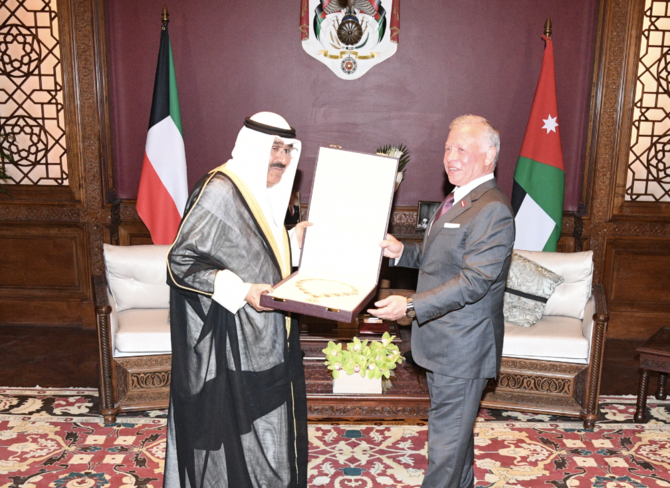
- Aircraft escorted by Royal Jordanian Air Force F-16 fighter jets
AMMAN: The Emir of Kuwait Sheikh Mishal Al-Ahmad Al-Jaber Al-Sabah arrived in Amman on Tuesday for a two-day state visit to Jordan, the Kuwait News Agency reported.
The emir’s aircraft was escorted by Royal Jordanian Air Force F-16 fighter jets as it entered Jordan’s airspace. Upon arrival at Marka Airport, he was warmly received by Jordan’s King Abdullah II and Crown Prince Al Hussein bin Abdullah.
An official welcoming ceremony took place, according to a statement by the royal court. The day continued with Sheikh Mishal and King Abdullah engaging in formal discussions at Basman Palace which focused on strengthening long-standing bilateral relations and enhancing cooperation to meet the aspirations of their countries.
Sheikh Mishal congratulated King Abdullah on the 25th anniversary of his coronation and spoke of Jordan’s progress under his leadership. The session was attended by top officials from both countries.
Sheikh Mishal was awarded the Al-Hussein Necklace, the highest civilian medal in Jordan, by King Abdullah.
The meeting concluded with a banquet hosted by King Abdullah in honor of Sheikh Mishal and his delegation, which celebrated the deep ties between Kuwait and Jordan.
US to begin Gaza aid pier construction ‘very soon’
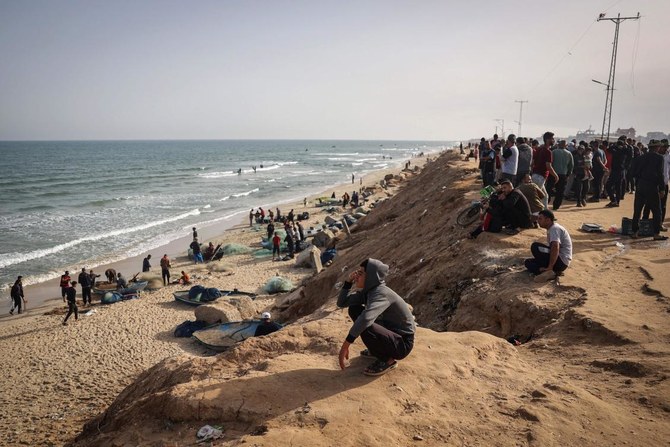
- Facility will consist of an offshore platform for the transfer of aid from vessels, and a pier to bring it ashore
WASHINGTON: The United States will begin construction “very soon” on a pier to boost deliveries of desperately needed aid to Gaza, the Pentagon said Tuesday.
Gaza — a small coastal territory — has been devastated by more than six months of Israeli bombardment and ground operations against Hamas militants, leaving the civilian population in need of humanitarian assistance to survive.
“All the necessary vessels are within the Mediterranean region and standing by,” Pentagon spokesman Major General Pat Ryder told journalists, referring to the watercraft carrying equipment for the pier project.
“We are positioned to begin construction very soon,” Ryder added.
The facility will consist of an offshore platform for the transfer of aid from larger to smaller vessels, and a pier to bring it ashore.
Plans were first announced by US President Joe Biden in early March as Israel held up deliveries of assistance by ground.
US officials have said the effort will not involve “boots on the ground” in Gaza, but American troops will come close to the beleaguered territory as they construct the pier, for which Israeli forces are to provide security on the ground.
Services at Dubai Airport back to normal after disruptions caused by storm
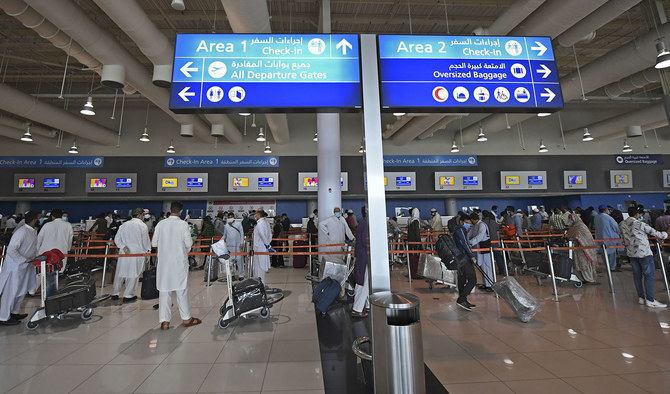
- DXB CEO Paul Griffiths says challenges remain, including baggage backlog
- Regular flight schedules have resumed, with 1,400 flights operating each day
DUBAI: Regular flight schedules at Dubai International Airport had resumed by Monday following the storm early last week that caused the highest rainfall the UAE has experienced in 75 years, Dubai Airports CEO Paul Griffiths said on Tuesday. About 1,400 flights are now operating each day.
“With roads in and around the airport 100 percent clear of water accumulation, our manpower, logistics and facilities are operating as usual again,” he added.
“To have the airport back up and running is no small feat. Also, 2,155 flights were canceled and 115 were diverted. We had to work closely with our airline partners and service providers to rework schedules, boost manpower and look after all those who had been disrupted.
“I’m continuously amazed by the unwavering dedication of our Dubai Airports employees, airline partners, government agencies, commercial partners and service partners. It has been the most challenging adverse weather event we’ve had to navigate, and our people and partners worked tirelessly to keep the operation running and to assist our guests.”
Griffiths said the welfare of passengers remained a central focus throughout the disruptions over the past week. After some initial difficulties in delivering supplies as a result of flooded roads around Dubai International and Dubai World Central airports, more than 75,000 food packs were successfully provided for passengers stranded at the two locations.
“While certain challenges remain, including processing the baggage backlog, we’re working closely with our service partners but know there’s still more work to be done and, once again, thank guests for their patience while we work through this,” said Griffiths.
“We’re deeply saddened by the ongoing impact of the heavy rainfall on affected communities and businesses across the UAE. We’re also supporting our own people who were badly affected by the weather and will continue to support wherever we can.”
US calls on Iraq to safeguard US troops after new attacks
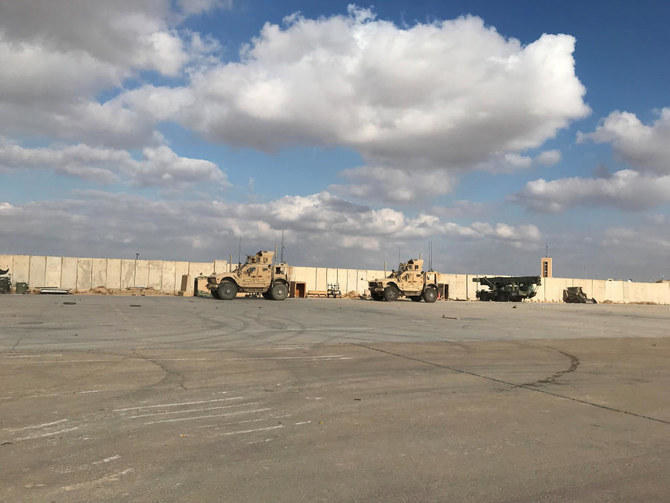
- “These attacks put coalition and Iraqi personnel at risk,” Air Force Major General Patrick Ryder told a news briefing
WASHINGTON: The US military called on Iraq’s government on Tuesday to take steps to safeguard American troops in both Iraq and Syria after failed attacks on Monday by Iran-aligned militia.
“These attacks put coalition and Iraqi personnel at risk. We call on the government of Iraq to take all necessary steps to ensure the safety of US forces in Iraq and Syria against attacks from these groups,” Air Force Major General Patrick Ryder told a news briefing.
“If these attacks continue, we will not hesitate to defend our forces, as we have done in the past.”


